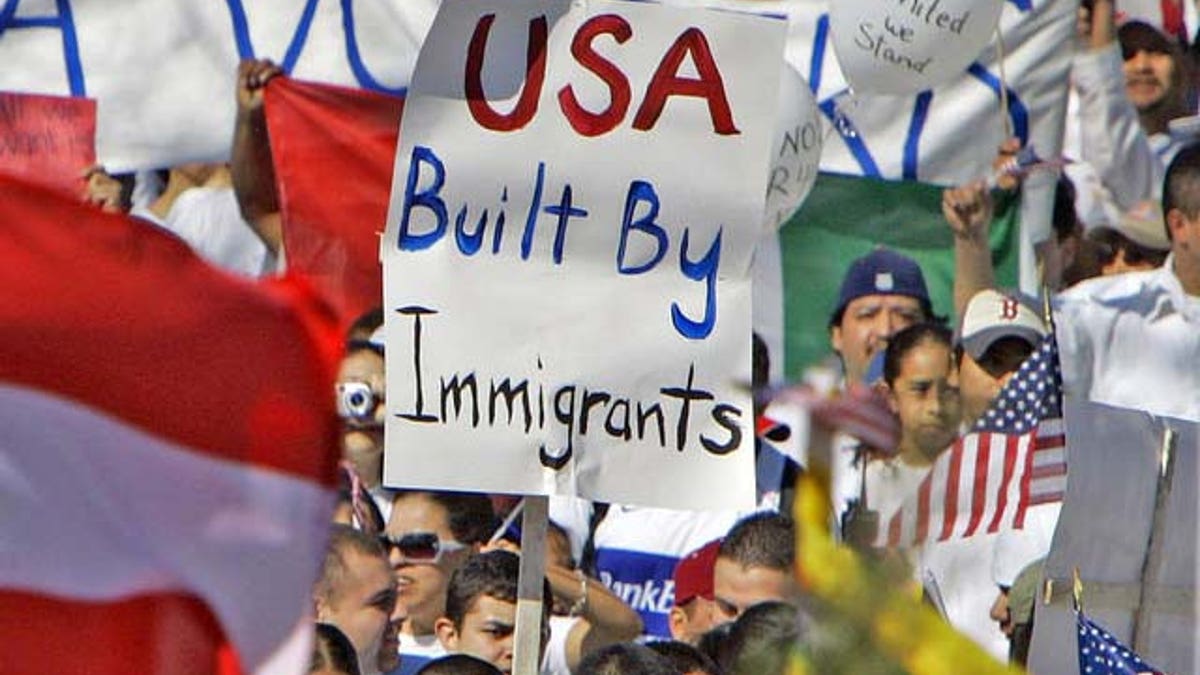
Rally outside the Capitol in Lincoln, Nebraska. (AP)
While Donald Trump's transition team is not yet answering questions about his immigration plans, the business community has begun to pressure him to abandon campaign-trail pledges of mass deportation and other hard-line immigration policies.
Some large employers behind the push fear such policies would hurt the economy.
"This election clearly showed that Americans are wildly frustrated with our broken immigration system," said Jeremy Robbins, executive director of the group New American Economy. "But it would be a mistake to equate their desire for someone to secure the border with support for mass deportation or other hardline policies that would both devastate the economy and undermine core American values."
Other groups, such as the U.S. Chamber of Commerce, are holding off, doubtful that Trump will actually create a deportation force, as he suggested before his election, to expel those estimated 11 million immigrants in the country illegally.
Robbins' organization has in recent days unveiled coalitions of business leaders and public officials that oppose an immigration crackdown — many of them Trump supporters — across Utah, California, South Carolina, Florida and Colorado with more coming in Arizona, Idaho, North Carolina, Pennsylvania and Texas. Backed by its directors' deep pockets, the group is working to create a permanent infrastructure that will pressure the new administration and members of Congress in key battlegrounds even before the debate officially begins on Capitol Hill.
Trump railed against the dangers of illegal immigration throughout his campaign, but he hinted at a softer approach in a Time magazine interview published this week, saying he would "work something out" to help immigrants who were brought to the United States illegally as children and granted work permits by President Barack Obama.
On deportation, Trump told "60 Minutes" shortly after the election that he would prioritize deporting between 2 and 3 million "people that are criminal and have criminal records— gang members, drug dealers" -- a plan largely in line with the Obama administration's current policy.
Trump’s nominee for Labor Secretary, Andrew Puzder, a fast-food restaurant mogul, has supported Republican and Democratic compromise plans on immigration reform. At an American Enterprise Institute forum in 2013, he described a path to legalization for millions of undocumented immigrants in the country as "the right thing to do," according to a video of the event.
That support prompted criticism from anti-immigration groups like NumbersUSA. The group's Roy Beck called Puzder's nomination "disconcerting."
The business world was caught flat-footed when Trump won.
Business leaders had invested far more time coordinating immigration policy with Democrat Hillary Clinton before the election. None of the major players have had regular contact with Trump's transition team since his victory, even though Trump has vowed to make immigration a focus of the early days of his presidency.
"This is going to take a while," said Daniel Garza, executive director for the Koch Brothers-backed LIBRE Initiative, which supports a pathway to citizenship for immigrants in the country illegally and opposes mass deportation. "In the meantime we will make sure our voice is heard."
Based on reporting by The Associated Press.








































